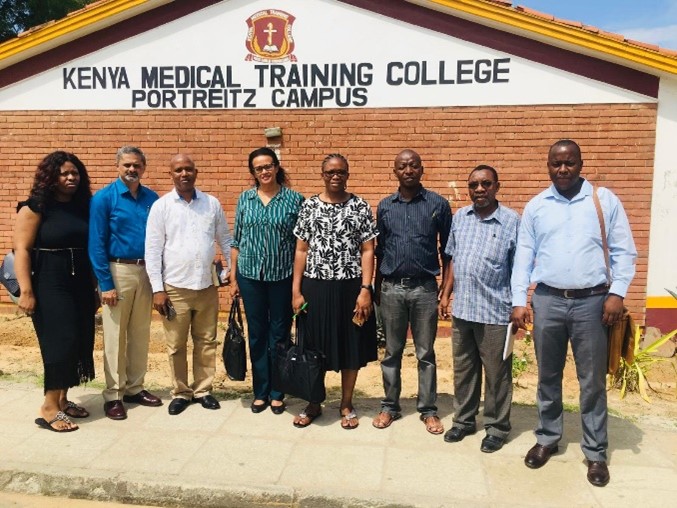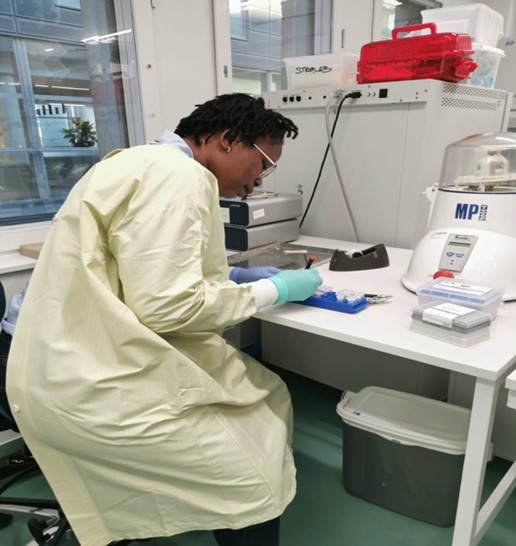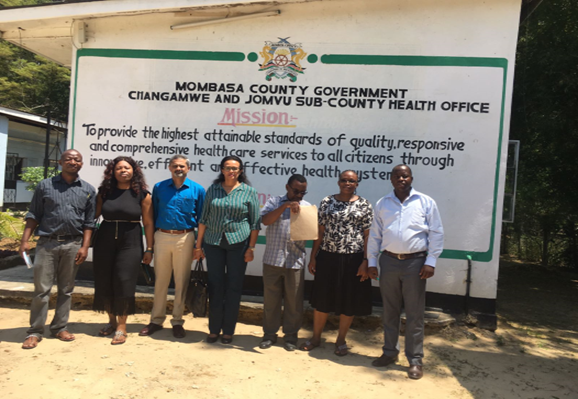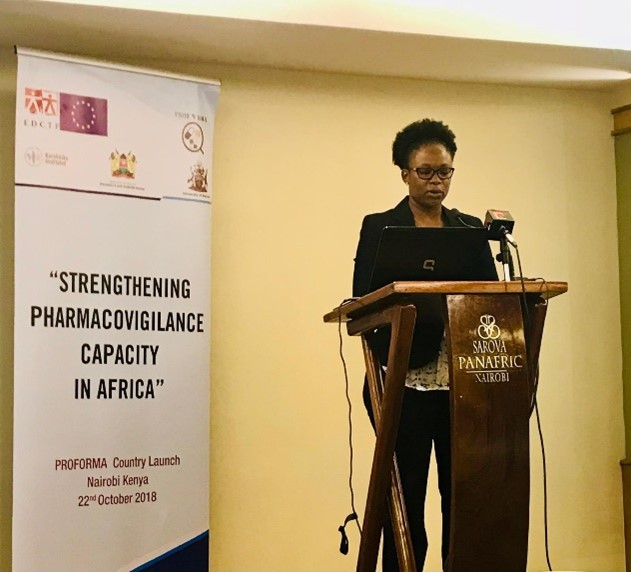
Bridging Research and Regulation: Christabel Khaemba’s PhD Journey in Advancing Pharmacovigilance in Kenya’s public health program
Christabel Khaemba is a doctoral student at Karolinska Institutet, Sweden, with a PhD project entitled “Active Safety Surveillance of Drugs Used in Lymphatic Filariasis Control Programme in Kenya.” She holds a Bachelor of Pharmacy degree and a Master’s degree in Pharmacoepidemiology and Pharmacovigilance from the University of Nairobi, Kenya. Currently, she serves as the Principal Regulatory Officer and Head of Pharmacovigilance at the Pharmacy and Poisons Board, Kenya’s national medicine regulatory agency.
Christabel has played a pivotal role in coordinating and participating in the development and implementation of Kenya’s pharmacovigilance system. Additionally, she serves as the Principal Investigator in the PROFORMA project, representing the Pharmacy and Poisons Board.
Christabel is one of five doctoral students registered at Karolinska Institutet as part of the PROFORMA project, led by Professor Eleni Aklillu. The PROFORMA project aims to strengthen regulatory capacity in pharmacovigilance and post-marketing surveillance in four East African countries, including Kenya. The PROFORMA project is funded by the EDCTP2 program, with support from the European Union.
Enhancing NTD Control Programs: The Impact of Christabel Khaemba’s PhD Project on Integrating Pharmacovigilance
Christabel Khaemba’s PhD project focuses on improving pharmacovigilance for medicines used in Mass Drug Administration (MDA) programs aimed at eliminating lymphatic filariasis. Following the recent WHO recommendation, Kenya became the first African nation to pilot triple therapy for this purpose. Her research provided crucial safety data before the broader implementation of this new intervention, demonstrating that triple therapy is safe and tolerable compared to the standard dual therapy.
Christabel emphasizes the urgent need to incorporate pharmacovigilance within MDA campaigns as these medicines are administered to at-risk populations without prior diagnosis or safety monitoring. She points out that identifying potential risk factors and managing adverse outcomes is crucial, especially in Sub-Saharan African regions where robust pharmacovigilance frameworks are often lacking.

She further explicates the contribution of her research towards enhancing the integration of pharmacovigilance into the operational protocols of Neglected Tropical Diseases (NTD) control program in Kenya. Her work has not only strengthened the collaboration between the National Pharmacovigilance Centre and the National NTD Program but has also broadened their partnership and establishing pharmacovigilance as a key component of MDAs with improved collaborative mechanisms.
Christabel Khaemba’s PhD journey exemplifies how dedicated research can bridge the gap between science and regulation. Her efforts in advancing pharmacovigilance in Kenya’s public health programs underscore the importance of drug safety in improving healthcare outcomes. Through her work, Christabel is paving the way for a future where robust pharmacovigilance systems safeguard the health and well-being of the Kenyan population.
Upcoming doctoral thesis defense
Looking forward to completing her PhD program, Christabel is eager to apply the knowledge gained in practice at the National Pharmacovigilance Centre in Kenya. She highlights her expertise in various facets of pharmacovigilance, including research methodology, data analysis, interpretation, and effective dissemination of research findings. These competencies will undoubtedly enhance her ability to conduct robust pharmacoepidemiologic research and make well-informed regulatory decisions in the field of pharmacovigilance and post-marketing surveillance.




0 comments